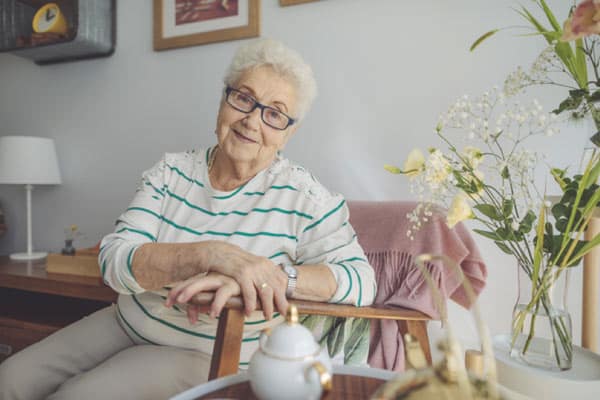Summers in Florida are notoriously hot and humid – sometimes unbearably so. For older adults, the excessive heat and humidity can be dangerous. It’s important to know the signs of heat-related illnesses and how to prevent them in order to keep older loved ones safe. American, Advocate and Whitsyms In-Home Care offer the following information on signs to watch for and tips to keep seniors cool.
What Are the Warning Signs of Heat-Related Illnesses?
There are several heat-related conditions to be aware of and to prevent, each with their own distinct symptoms:
- Heat Rash: Heat rash produces pimple-like blisters in clusters, typically on the chest, neck, groin, or in the bend of the elbow.
- Sunburn: Most of us are familiar with the redness, warmth, and pain associated with sunburn, but it can also produce blisters.
- Heat cramps: Heat cramps occur during intense exercise that produces heavy sweating and muscle spasms or pain.
- Heat exhaustion: Like heat cramps, heat exhaustion also produces heavy sweating and muscle cramps, but can also include cold, clammy skin, weakness or dizziness, headache, nausea, or vomiting.
- Heat stroke: Heat stroke is the most serious heat-related condition. Skin will be red and hot, and may be either dry or damp. Body temperature is elevated to 103 degrees or more. The person may also experience a strong, fast pulse, dizziness, confusion, headache, nausea, and may lose consciousness as well.
How Can You Prevent Heat-Related Health Problems?
Have a plan in place to avoid heat-related health problems. Keep these ten tips in mind to keep seniors cool and safe.
- Dress in breathable, lightweight materials, such as cotton.
- Stay hydrated throughout the day, regardless of whether the person feels thirsty or not. Plain, cool water is best. Avoid drinks with caffeine or alcohol.
- Keep the home air conditioned, and stay indoors during the hottest time of day.
- If the home does not have air conditioning, visit cool facilities such as the library, mall, or senior center.
- Rest the feet in a pan of cool water.
- Take a cool shower or bath, or use cool, damp washcloths to wipe down the skin.
- Place a cool, damp washcloth on the back of the neck, regularly dipping into fresh water when it becomes warm.
- Eat lighter, chilled meals such as chicken, tuna, or pasta salad.
- Enjoy cool treats like popsicles or chilled fruit.
- Limit outdoor time to early morning and evening when the heat is less overbearing.
Home Care Services Can Help!
A referred care provider from American, Advocate or Whitsyms In-Home Care can help protect older adults from heat-related conditions, while providing safe, engaging activities to make each day the best it can be. Some of the many ways a referred caregiver can help include:
- Preparing healthy meals that are light, nutritious, and delicious
- Running errands like grocery shopping, so the older adult can stay safe in the cool comfort of home
- Taking care of laundry and light housekeeping chores
- Offering friendly companionship for engaging conversations, games, cards, arts and crafts, hobbies and interests, puzzles, etc.
- And much more
To learn more about all the ways in-home care services can help the older adults you love enjoy a safe, comfortable summer, contact us today at the location nearest you.
- American In-Home Care – Serving North, Central, and West Coast of Florida
- Advocate In-Home Care – Serving Southeast and Southwest Florida
- Whitsyms In-Home Care – Serving Southeast and Southwest Florida
State of Florida License and Registration Numbers: 30211518, 30211651, 30211295, 30211390, 30210978, 30211293, 30211382, 30211504, 30211733, 30211535, 30211531, 30211710, 30211709, 30211045, 5661












